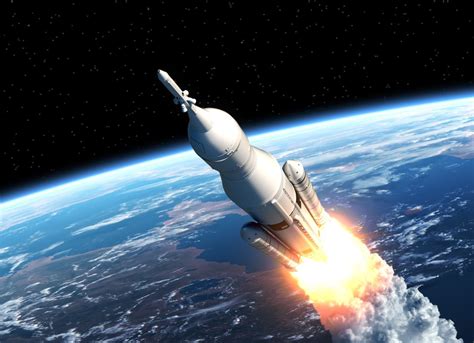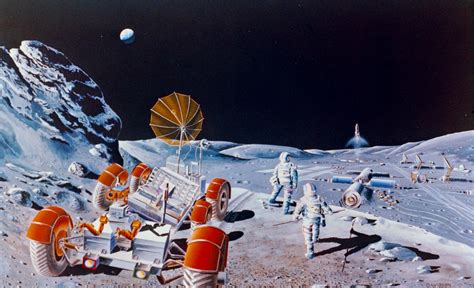Breaking News


Popular News


Explore the history, technology, and future of space exploration. From historical milestones to current challenges, discover the new frontiers of the universe.Space exploration has long captivated the imagination of humankind, offering a glimpse into the vast unknown of the universe. From the first journey into outer space to the latest technological advancements, the quest for discovering new frontiers has been a testament to human ingenuity and curiosity. In this blog post, we will delve into the fascinating world of space exploration, examining its historical milestones, technological advancements, current challenges, and the exciting future that lies ahead. Join us as we take an in-depth look at the overview of space exploration, from its humble beginnings to its potential for shaping the destiny of humanity. From the race to the moon to the search for extraterrestrial life, space exploration continues to push the boundaries of what is possible, and its impact on our world is profound. So, fasten your seatbelts as we embark on a journey through the cosmos to understand the wonders of space exploration.
Contents

Space exploration is the investigation and exploration of outer space by means of space technology. It encompasses the physical observation of the planets and stars, space travel, and the collection of data with scientific instruments. The history of space exploration dates back to the mid-20th century, when the Space Race between the United States and the Soviet Union spurred rapid advancements in space technology and led to several historic milestones in human spaceflight.
One of the most significant achievements in the field of space exploration is the landing of humans on the Moon. The Apollo 11 mission, launched by NASA in 1969, marked the first time in history that humans set foot on another celestial body. This monumental event not only demonstrated the capabilities of human space travel but also paved the way for further exploration of the Moon and beyond.
Space exploration has also greatly contributed to our understanding of the universe and has provided valuable insights into the potential for life beyond Earth. The Hubble Space Telescope, launched into orbit by NASA in 1990, has captured breathtaking images of distant galaxies and deep space objects, expanding our knowledge of the cosmos and igniting curiosity about the mysteries of the universe.

Historical Milestones in Space Exploration
Space exploration has always been a fascinating subject, as humans have sought to expand their knowledge of the universe beyond Earth. Throughout history, there have been numerous milestones that have marked significant advancements in our understanding of space and our ability to explore it.
One of the earliest milestones in space exploration dates back to the 17th century, when Galileo Galilei made the first telescopic observations of the night sky. This groundbreaking discovery paved the way for our understanding of the cosmos and laid the groundwork for future space exploration endeavors.
Fast forward to the mid-20th century, and we have the launch of the first artificial satellite, Sputnik 1, by the Soviet Union in 1957. This event marked the beginning of the space age and ignited a space race between the United States and the Soviet Union, leading to further monumental achievements such as the first human spaceflight by Yuri Gagarin in 1961.
Another iconic milestone in space exploration was the Apollo 11 mission in 1969, which saw the first humans set foot on the moon. This historic achievement not only captured the world’s imagination but also paved the way for further lunar exploration and contributed to our understanding of the universe.

Space exploration has seen numerous technological advancements in recent years, making it easier for mankind to reach new frontiers in the universe. One of the significant technological advancements is the development of reusable rockets. With the introduction of companies like SpaceX, the cost of launching satellites and other cargo into space has decreased significantly.
Another milestone in space exploration technology is the development of advanced propulsion systems. These systems have enabled spacecraft to travel farther and faster, allowing for the exploration of distant planets and celestial bodies. Additionally, advancements in robotics and artificial intelligence have allowed for the development of autonomous rovers and drones that can navigate and collect data on other planets.
Furthermore, the use of 3D printing technology has revolutionized space exploration by allowing astronauts to produce tools and spare parts while on missions. This technology has reduced the need to carry excess supplies, making long-duration space missions more sustainable. The advancements in communication technology have also been crucial in enabling real-time communication between astronauts and mission control on Earth.
Overall, these technological advancements have paved the way for exciting developments in space exploration, and they continue to drive the industry forward, pushing the boundaries of what is possible in the universe.

Space exploration has always been a challenging endeavor, and it continues to present numerous obstacles for scientists and engineers. One of the major challenges facing space exploration today is the high cost involved in launching and maintaining missions. The expense of building and launching spacecraft, as well as the complex technology required for long-term space travel, is a significant barrier to further exploration of the cosmos.
Another challenge is the difficulty of sustaining life in outer space. Astronauts must contend with the harsh conditions of space, including microgravity, radiation exposure, and isolation. Finding ways to support human life for extended periods in the hostile environment of space is an ongoing concern for space agencies around the world.
Furthermore, space debris poses a significant challenge to current and future space missions. The accumulation of defunct satellites, spent rocket stages, and other debris in Earth’s orbit creates a hazardous environment for spacecraft. Collisions with space debris can cause serious damage to satellites and crewed missions, and efforts to mitigate the growing threat of space debris are an essential aspect of ensuring the safety and success of space exploration endeavors.
In addition to these challenges, the development of advanced propulsion systems, navigation technologies, and life support systems is crucial for overcoming the obstacles that stand in the way of further exploration of the cosmos. Scientists and engineers are working tirelessly to address these challenges and pave the way for future missions to the moon, Mars, and beyond.

As we look ahead to the future of space exploration, it is clear that there are many exciting developments on the horizon. With advancements in technology and a growing interest from governments and private companies, the potential for further exploration of our universe is truly limitless.
One of the most promising areas of development in the future of space exploration is the potential for manned missions to other planets, such as Mars. Organizations like NASA and SpaceX have been working tirelessly to develop the technology and infrastructure necessary to make this dream a reality. With the continued development of spacecraft and life support systems, the possibility of humans setting foot on Mars in the near future is becoming increasingly plausible.
Additionally, the future of space exploration holds great promise for furthering our understanding of the universe. With advancements in telescopes and other observation technology, scientists are gaining new insights into distant planets, stars, and galaxies. This ongoing research is helping to deepen our understanding of the origins of the universe and the potential for life beyond our own planet.
| Challenges | Solutions |
|---|---|
| Harsh conditions in space | Development of advanced life support systems |
| Distance and travel time to other planets | Ongoing development of faster spacecraft propulsion systems |
| Funding and political support | Partnerships between governmental space agencies and private companies |
While there are certainly challenges that lie ahead, the future of space exploration is filled with potential and possibility. With continued innovation and collaboration, we are on the brink of discovering new frontiers in the universe and expanding our understanding of the cosmos in ways we never thought possible.

What are some of the recent discoveries in space exploration?
Recent discoveries include the potential for liquid water on Mars, the existence of exoplanets in habitable zones, and the detection of gravitational waves.
How has space exploration benefited humankind?
Space exploration has led to the development of new technologies, improved understanding of the universe, and the inspiration for future generations.
What are some challenges in space exploration?
Challenges include long-term space travel, radiation exposure, and the difficulty of landing on other planets.
What is the significance of finding habitable exoplanets?
Finding habitable exoplanets is significant because it raises the possibility of extraterrestrial life and expands our understanding of the potential for life beyond Earth.
How does space exploration contribute to scientific research?
Space exploration provides valuable data for scientific research in fields such as astronomy, planetary science, and astrobiology.
What are future goals for space exploration?
Future goals include sending humans to Mars, setting up a sustainable lunar base, and exploring the outer planets of our solar system.
How can individuals support space exploration efforts?
Individuals can support space exploration by advocating for funding, staying informed about space missions, and pursuing careers in relevant STEM fields.